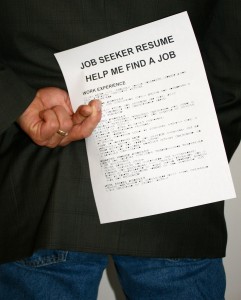Business is mostly conducted via email or phone communications.
Office hours 10:00 a.m. to 6:00 p.m, Mon. - Thurs., and 10:00 a.m. to 2:00 p.m. on Fridays.
SEND EMAIL INQUIRIES DIRECTLY TO:
Dawn.Boyer@me.com
Business is mostly conducted via email or phone communications.
Office hours 10:00 a.m. to 6:00 p.m, Mon. - Thurs., and 10:00 a.m. to 2:00 p.m. on Fridays.
SEND EMAIL INQUIRIES DIRECTLY TO:
Dawn.Boyer@me.com
Business is mostly conducted via email or phone communications.
Office hours 10:00 a.m. to 6:00 p.m, Mon. - Thurs., and 10:00 a.m. to 2:00 p.m. on Fridays.
SEND EMAIL INQUIRIES DIRECTLY TO:
Dawn.Boyer@me.com
Recruiters Are Not Your Personal Job Finders
May 9th, 2013 by Dawn Boyer
Reality check: Recruiters are not your personal job finders.
This viewpoint may burst some bubbles for most job seekers. It’s a hard reality and needs to be understood by job seekers who have the wrong idea about what recruiters and headhunters do for a living. When one starts a search for a new job, the first professional they may try to connect with is a recruiter. A recruiter would know where to find a job…right? They can take the resume and push it to everyone they know…right? Dead wrong.
Here are the hard-core truths. HR reps and recruiters are too busy to call anyone their company isn’t ‘continuing to be interested in.’ They will not return phone calls, voice mail, email, or text messages. They are overwhelmed with communications trying to find the ‘perfect candidate.’ If you are not ‘the match’ – you can talk ‘til you’re blue – it won’t change the circumstances. You only waste the recruiter’s time.
When hiring a professional, there’s no such thing as a professional job-finder. Resume writers, career advisors, career counselors, life coaches, or outplacement service professionals may be close – but they’re not job-finders. Part of their duties to help you may be to provide advice, but it’s not their responsibility to find that job for you. The onus is on the job seeker. If serious about finding their next position, they should take matters into their own hands. Don’t blindly contact recruiters and ask them to help you find a job. It’s too broad and ambiguous – be specific and targeted.
Its a numbers game – job seekers submit resumes, aim for multiple interviews, and hope for an offer letter. Recruiters review hundreds of resumes from websites, headhunters, or employee referrals for each position, query the resumes for the most keywords, and send the top 5-10 results to a hiring manager. The hiring manager picks his top three to interview and makes a decision based on salary (budget), availability, knowledge, skills, experience, and abilities, as well as personality in the interview. If it is a government customer, they usually reserve the right to ‘approve staff.’ The candidate may be qualified, but the client may reject them and move on.
It sounds harsh, but it is reality. Finding a job is not a matter of justice or fairness or luck. No one owes anyone a job. Recruiters are your ‘friend’ only if you meet the requirements they need ‘right now.’ Once hired, they may get to know you better and start to care; but not until they invest in the candidate as an employee.
Recruiters don’t have time to care about the job seeker, their inconveniences, and car or family problems any more than a cashier at the grocery store. They care about their jobs, keeping hiring managers happy, and staying within a staffing budget. They will be polite and thorough to qualified candidates, as well as perform the minimum steps necessary to get that candidate hired. Hiring managers do not care about applicants or their inconveniences and problems, any more than a car salesman. Hiring managers care about whether the qualified candidate keeps the client happy, they stay within a labor budget, and can get the job done.
Recruiters and headhunters are ‘people finders,’ not ‘job finders.’ They have a set number of specific openings at any given time and only hire one person per seat. One. That means hundreds of applicants are not getting that job. Job searches are not a lottery and it is not a matter of luck – it is a ‘high throughput’ process. It is a matter of getting the right resume with the needed skill set to the recruiter to solve a company’s problem. In government contracting, there is really only one customer – the government – not the business per se.
There is little point in calling a recruiter. Job seekers need to ask when the decision is to be made in the interview. If they’re interested in hiring, they’ll call. If you know when the position closes, then call the day after if you haven’t gotten a ‘sorry, we found another more qualified candidate’ message. One call…no more. If you don’t get through, then drop that job lead into the dead-file. Depending upon their email management system within an automated tracking system for resumes, there is a chance they’ll notify the ‘rejects’ – but most likely they don’t have time for follow-up.
Apply online to specific jobs posted or add your digital resume to the general resume database for a company. Engage with employees of a targeted company on social media (LinkedIn, Twitter) to show your strengths and capabilities. Network with recruiters by helping them find qualified candidates for jobs they need to fill. Or go to trade events to talk with recruiters about their interests and problems. They’ll remember when job seekers apply for themselves.
Job seekers should recognize the recruiters’ viewpoint – it is up to the job seeker to find that job and apply for it. If they are unemployed – then their full-time job is reviewing openings, applying for jobs, and uploading their digital resume into those resume databases. It’s not the responsibility of a recruiter to help the job seeker to find or get that next career position.
Dawn Boyer, Ph.D. is the owner of D. Boyer Consulting – a resume and career services coach, social media management, human resources and business development consultant. She can be reached at Dawn.Boyer@DBoyerConsulting.com or visit her website at https://dboyerconsulting.com.
Readers Comments
Recruiters Are Not Your Personal Job Finders
May 9th, 2013 by Dawn Boyer
Reality check: Recruiters are not your personal job finders.
This viewpoint may burst some bubbles for most job seekers. It’s a hard reality and needs to be understood by job seekers who have the wrong idea about what recruiters and headhunters do for a living. When one starts a search for a new job, the first professional they may try to connect with is a recruiter. A recruiter would know where to find a job…right? They can take the resume and push it to everyone they know…right? Dead wrong.
Here are the hard-core truths. HR reps and recruiters are too busy to call anyone their company isn’t ‘continuing to be interested in.’ They will not return phone calls, voice mail, email, or text messages. They are overwhelmed with communications trying to find the ‘perfect candidate.’ If you are not ‘the match’ – you can talk ‘til you’re blue – it won’t change the circumstances. You only waste the recruiter’s time.
When hiring a professional, there’s no such thing as a professional job-finder. Resume writers, career advisors, career counselors, life coaches, or outplacement service professionals may be close – but they’re not job-finders. Part of their duties to help you may be to provide advice, but it’s not their responsibility to find that job for you. The onus is on the job seeker. If serious about finding their next position, they should take matters into their own hands. Don’t blindly contact recruiters and ask them to help you find a job. It’s too broad and ambiguous – be specific and targeted.
Its a numbers game – job seekers submit resumes, aim for multiple interviews, and hope for an offer letter. Recruiters review hundreds of resumes from websites, headhunters, or employee referrals for each position, query the resumes for the most keywords, and send the top 5-10 results to a hiring manager. The hiring manager picks his top three to interview and makes a decision based on salary (budget), availability, knowledge, skills, experience, and abilities, as well as personality in the interview. If it is a government customer, they usually reserve the right to ‘approve staff.’ The candidate may be qualified, but the client may reject them and move on.
It sounds harsh, but it is reality. Finding a job is not a matter of justice or fairness or luck. No one owes anyone a job. Recruiters are your ‘friend’ only if you meet the requirements they need ‘right now.’ Once hired, they may get to know you better and start to care; but not until they invest in the candidate as an employee.
Recruiters don’t have time to care about the job seeker, their inconveniences, and car or family problems any more than a cashier at the grocery store. They care about their jobs, keeping hiring managers happy, and staying within a staffing budget. They will be polite and thorough to qualified candidates, as well as perform the minimum steps necessary to get that candidate hired. Hiring managers do not care about applicants or their inconveniences and problems, any more than a car salesman. Hiring managers care about whether the qualified candidate keeps the client happy, they stay within a labor budget, and can get the job done.
Recruiters and headhunters are ‘people finders,’ not ‘job finders.’ They have a set number of specific openings at any given time and only hire one person per seat. One. That means hundreds of applicants are not getting that job. Job searches are not a lottery and it is not a matter of luck – it is a ‘high throughput’ process. It is a matter of getting the right resume with the needed skill set to the recruiter to solve a company’s problem. In government contracting, there is really only one customer – the government – not the business per se.
There is little point in calling a recruiter. Job seekers need to ask when the decision is to be made in the interview. If they’re interested in hiring, they’ll call. If you know when the position closes, then call the day after if you haven’t gotten a ‘sorry, we found another more qualified candidate’ message. One call…no more. If you don’t get through, then drop that job lead into the dead-file. Depending upon their email management system within an automated tracking system for resumes, there is a chance they’ll notify the ‘rejects’ – but most likely they don’t have time for follow-up.
Apply online to specific jobs posted or add your digital resume to the general resume database for a company. Engage with employees of a targeted company on social media (LinkedIn, Twitter) to show your strengths and capabilities. Network with recruiters by helping them find qualified candidates for jobs they need to fill. Or go to trade events to talk with recruiters about their interests and problems. They’ll remember when job seekers apply for themselves.
Job seekers should recognize the recruiters’ viewpoint – it is up to the job seeker to find that job and apply for it. If they are unemployed – then their full-time job is reviewing openings, applying for jobs, and uploading their digital resume into those resume databases. It’s not the responsibility of a recruiter to help the job seeker to find or get that next career position.
Dawn Boyer, Ph.D. is the owner of D. Boyer Consulting – a resume and career services coach, social media management, human resources and business development consultant. She can be reached at Dawn.Boyer@DBoyerConsulting.com or visit her website at https://dboyerconsulting.com.











